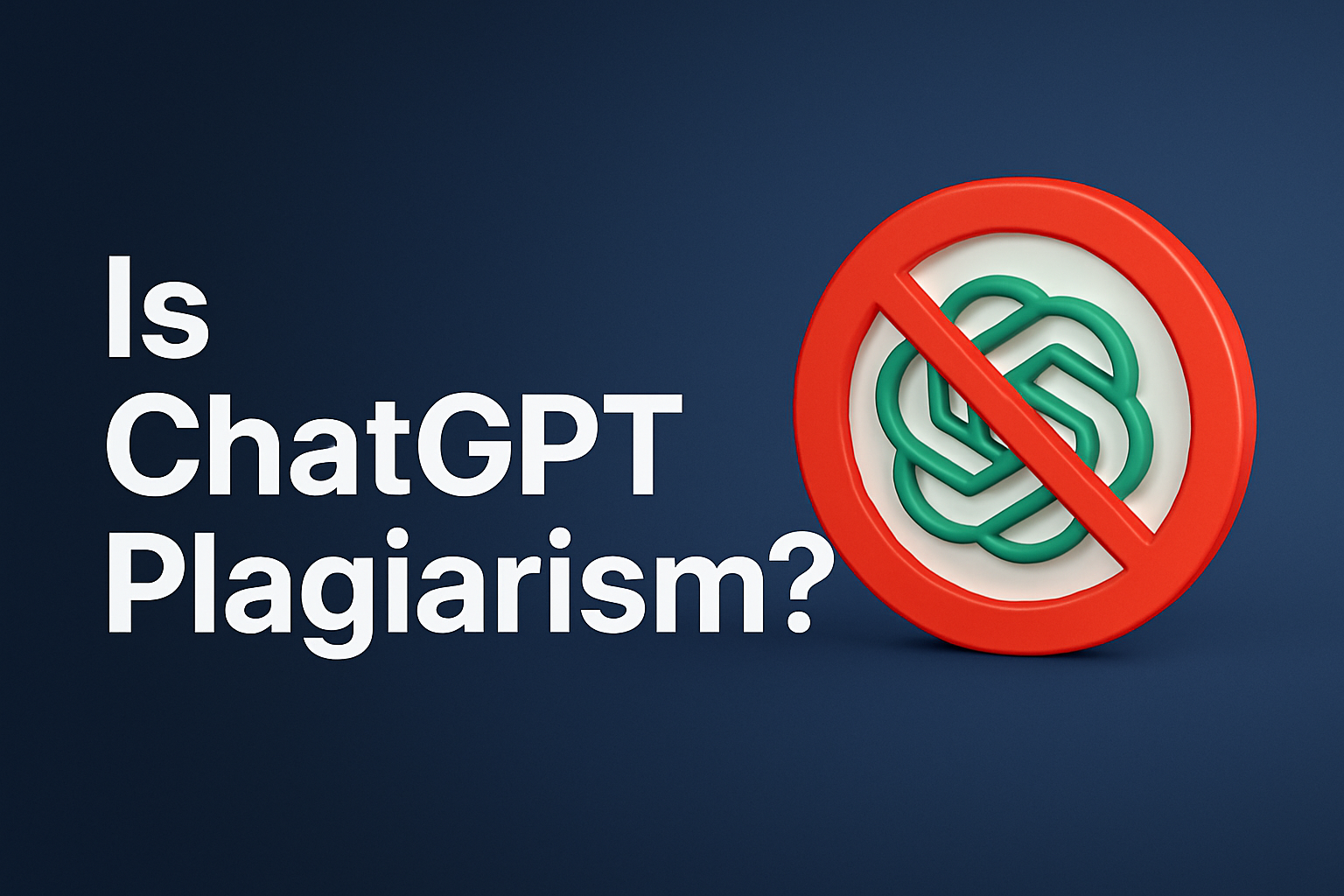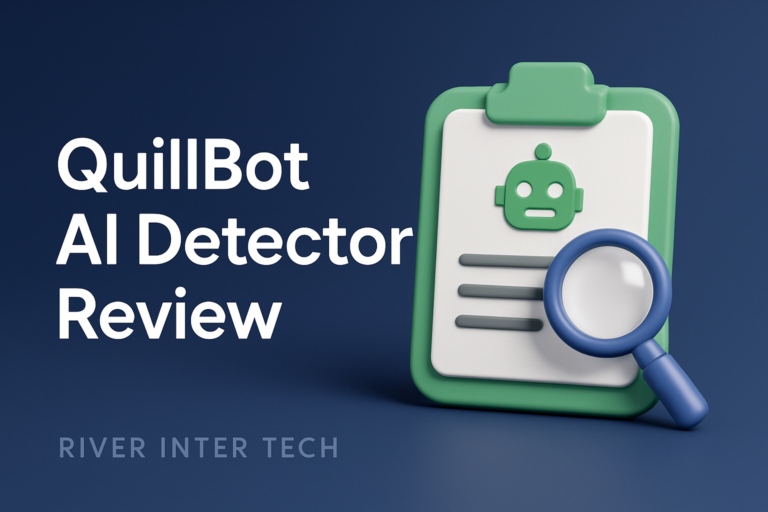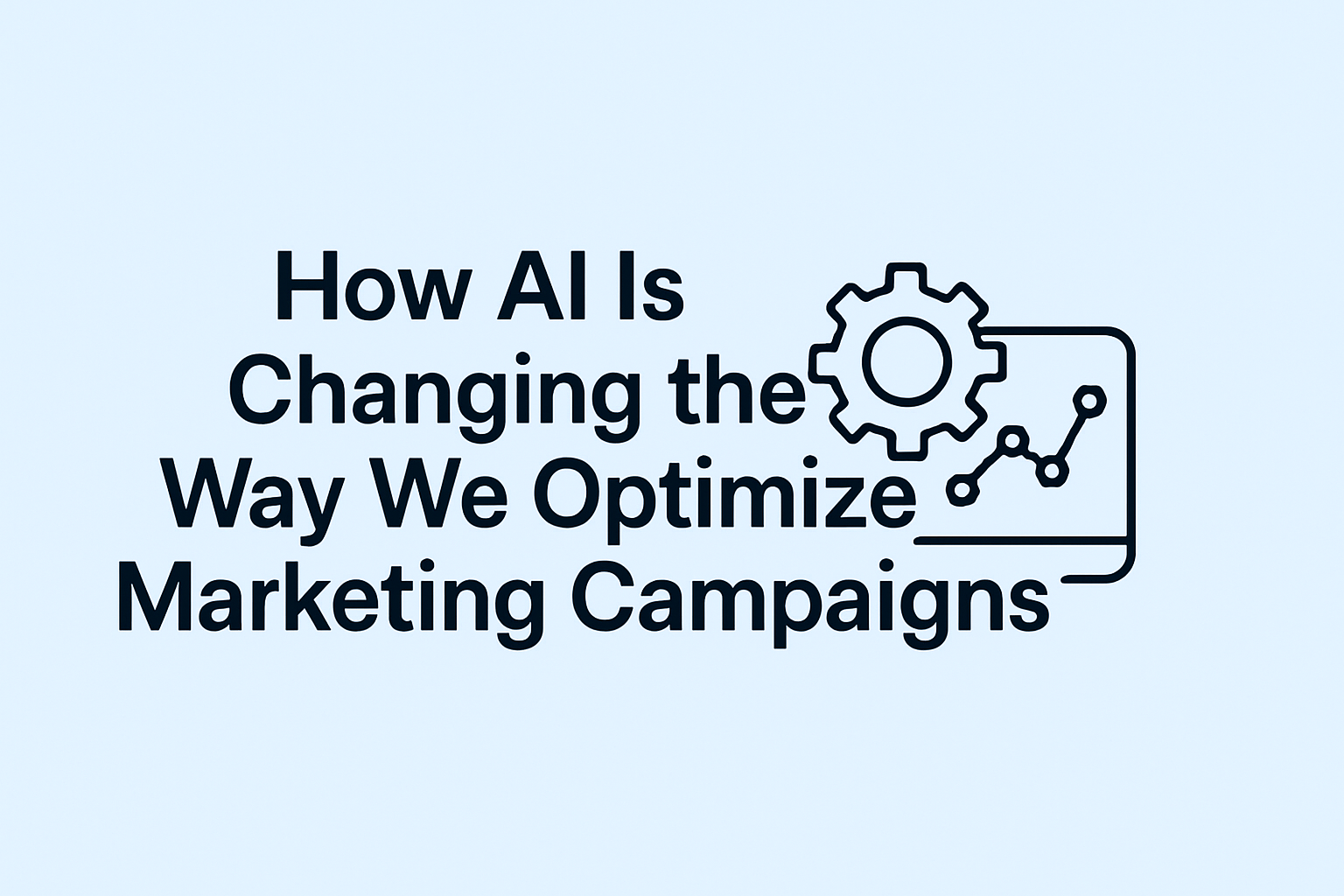Does ChatGPT Plagiarize? Responsible AI Use & Plagiarism Tips
Can using ChatGPT for your writing could get you into trouble for plagiarism? Does ChatGPT show up as plagiarism in plagiarism detection tools?
Many people feel anxious about crossing a line they didn’t mean to. With AI tools popping up everywhere, questions about originality and honesty in writing are more important than ever.
This guide explains how ChatGPT works, what counts as plagiarism, and how you can use AI without risking your reputation or grades.
Understanding Plagiarism
Plagiarism means using someone else’s words, ideas, or work without giving them credit. It’s not just about copying and pasting. Even if you paraphrase—that is, change a few words around but keep someone else’s ideas—you can still be guilty of plagiarism if you don’t say where the idea came from. Schools, universities, and workplaces take this very seriously. If you’re caught, you could lose marks, fail a class, or even face suspension. Sometimes, people plagiarize by accident because they forget to cite or don’t know the rules. But the result is the same: it damages your trustworthiness.
Different Types of Plagiarism
There are several kinds of plagiarism. Here’s a simple breakdown:
| Type | What It Means | Example |
|---|---|---|
| Direct Plagiarism | Copying words word-for-word without quotes or citation | Copy-paste a paragraph into your essay |
| Paraphrasing Plagiarism | Rewriting ideas from a source without giving credit | Change a few words from a website |
| Self-Plagiarism | Reusing your own past work without telling anyone | Submit an old paper for a new class |
| Accidental Plagiarism | Forgetting to cite or making a mistake in a citation | Miss a source in your bibliography |
| AI-Related Plagiarism | Using AI-generated text without saying it’s from AI | Paste ChatGPT output as your own work |
Plagiarism checkers like Turnitin and Scribbr look for all these, even if you didn’t mean to do it. Institutions treat intentional and accidental plagiarism the same. That’s why knowing how to avoid it matters so much.
How ChatGPT Generates Content
Does ChatGPT plagiarize? ChatGPT doesn’t store or pull up big chunks of text from its training data. Instead, it learns patterns in language by looking at lots of public books, articles, and web pages. When you ask it a question, it predicts a new response on the spot, using what it’s learned about how people write. Most of the time, the answer it gives you is unique. Still, sometimes ChatGPT’s replies look a lot like common facts or widely-shared ideas, just because so much data repeats online.
It’s rare, but there’s a small chance that a phrase from its training set could show up, especially if that phrase is well-known (like “To be or not to be”). But ChatGPT isn’t searching for or copying individual sources. Every answer is built from scratch.
Is ChatGPT Itself Plagiarism?
The quick answer: ChatGPT is not plagiarism by itself. It doesn’t steal from a single source. It generates fresh writing each time, based on what it’s learned about language in general. Still, if someone takes what ChatGPT writes and claims it’s fully their own work, that could be plagiarism. Is using ChatGPT plagiarism? The tool is neutral; it’s how you use it that decides if you’re crossing a line.
Universities and companies are starting to set clear policies about AI use. Most say you should cite or acknowledge the use of AI in your work. Some even ask for a note in the references or a footnote that says something like, “Portions generated by ChatGPT.” That way, you stay transparent and follow the rules.
Can Using ChatGPT Lead to Plagiarism?
Yes, it can—but only if you’re not careful. If you copy and paste ChatGPT’s answers directly into your assignment without editing or citing, you might get flagged for plagiarism. In fact, a Copyleaks study showed that nearly 60% of GPT-3.5 outputs had some overlap with existing texts. Tools like Turnitin can sometimes spot these overlaps. Can a chatbot be detected for plagiarism? Often, it can be if used carelessly.
It gets tricky because sometimes even your own words can sound close to what’s already out there, just because you’re both talking about common facts. Plus, some students have gotten warnings when AI detectors found “unoriginal” content, even if most of it was their own writing.
So, it’s smart to run your work through a plagiarism checker, cite any key sources, and always add your insights.
How to Avoid Plagiarism When Using ChatGPT
You can use ChatGPT as a helper, not as a shortcut to skip thinking. Here’s how to stay safe:
- Always Review and Edit: Don’t use the AI’s answer “as is.” Change the wording, add your ideas, and check the facts.
- Cite When Needed: If ChatGPT gives you a fact or quote, find the original source and cite it. If your school needs you to say when you used AI, add a note.
- Check for Overlap: Use tools like Grammarly, Turnitin, or Copyleaks to scan for matches.
- Follow School Policies: Some schools and jobs have rules for using AI. Look them up or ask your teacher.
Here’s a step-by-step workflow:
- Draft with ChatGPT for ideas or outlines.
- Rewrite in your own words and add your research.
- Check your draft in a plagiarism checker.
- Add citations for facts or direct quotes.
- Note in your references if you used AI.
Track AI Use with Grammarly Authorship
Grammarly Authorship is a tool that tracks what parts of your writing are typed, pasted, or AI-generated. Turn it on, and it logs your process in a report. That way, if anyone asks, you can show what is yours and what came from AI. A student on Reddit said this saved them when a professor questioned their originality—proof matters!
To use it, just enable Authorship in your Grammarly settings. Save the report with your work. This builds trust and helps you stay honest.
Conclusion
Does ChatGPT plagiarize? ChatGPT is a smart tool, but it’s not a magic shortcut to original writing. It builds new text, but it’s up to you to check for similarities, add your ideas, and cite what’s needed. Plagiarism checkers and Authorship trackers are there to help. The best writing comes when you blend your voice with a little help from technology. As AI and academic rules change, make sure you keep up with the latest best practices and your own school’s policies.
Is ChatGPT Plagiarism? FAQs
Does ChatGPT count as plagiarism?
No, ChatGPT on its own doesn’t plagiarize. But if you use its output without saying you did—or without rewriting and citing—it could be considered plagiarism. Most schools now ask you to disclose AI use.
Is ChatGPT 100% plagiarism-free?
No tool is perfect. ChatGPT tries to make unique answers, but sometimes phrases can match stuff already online, especially if it’s common knowledge. Always check your work for originality before submitting.
Does ChatGPT plagiarize?
The AI doesn’t try to copy. It writes by predicting words, not by pulling sentences from articles. Still, it’s possible for its answers to sound a lot like other sources when talking about common topics. Your review and edits are key.
How do I avoid plagiarism using ChatGPT?
Edit and personalize anything you get from AI. Cite sources for facts or direct quotes. Use plagiarism checkers like Grammarly, Copyscape, or Turnitin before handing in your work. Always follow your school or publisher’s rules.
Can Turnitin detect ChatGPT?
Yes, Turnitin and similar tools can sometimes flag AI-generated content, especially if you use it without changes.
Can I cite ChatGPT in academic work?
Yes, many styles let you cite AI. Check your format’s rules or search online for: How to Cite ChatGPT in APA & MLA.
What is Grammarly Authorship used for?
It tracks when and how you used AI in your drafts, helping you prove what parts are your own.






